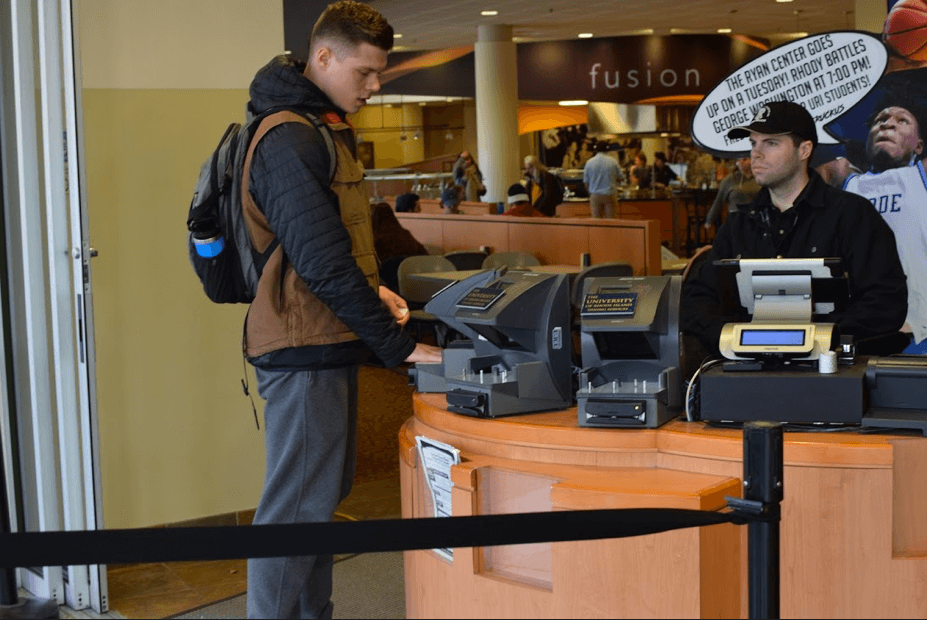Students are able to give away a meal swipe to feed someone in need. Photo by Greg Clark.
The University of Rhode Island brought back its Share a Swipe for Hope campaign this year, in which students were able to donate a meal swipe to help combat food insecurity on campus.
The program allows students to donate one of their guest passes from their meal plan to a fellow student that is food insecure. Students that are food insecure can apply to receive one of these donated meal swipes to be used at a URI dining hall.
The program ran from Nov. 12 to Nov. 22. Students could donate a guest swipe online through the Rhody Outpost website or by visiting one of the dining halls and donating a swipe through the main desk.
The Dean of Students Office and the URI Feinstein Center for a Hunger Free America conducted a food security survey last February, surveying students at both the Kingston and Providence campuses. The survey found that approximately 13 percent of URI students were considered to be at some level of food insecurity.
“That number is lower than what the national average is reported to be, but that doesn’t mean that we don’t have a concern,” Jacqui Tisdale, assistant director for outreach and intervention in the Dean of Students Office, said. “Twelve and a half percent of 13,000 students is concerning, and those are the only students who responded.”
According to Tisdale, in 2015, various groups such as Rhody Outpost, students and faculty started coming forward asking for more ways to help food insecurity on campus. At the time, URI’s software was unable to process the meal swipe donations and the program was not possible to develop.
However, over time and through the developments from the Campus ID Office and the Director of Dining Services, the software was updated and the program was able to be developed.
Share a Swipe for Hope began in 2018 after being developed in a collaboration by the Dean of Students Office, Rhody Outpost and Dining Services.
“For us, it was really important that students were going to be able to give back to fellow students and that all students could be included in those donations,” Tisdale said. “We know that many students don’t use all of their swipes. So, out of all of the possible ways to be of assistance, thus came the students can donate up to one swipe per semester.”
While the total number of swipes is still being determined, Tisdale emphasized that before the official count had even begun, 60 students had already donated a meal swipe to the program. Additionally, since the development of the program last year, students have donated over 260 meal swipes.
Tisdale is looking forward to making this program more frequent at the University. There will be another Share a Swipe for Hope program running next semester, likely around Valentine’s Day, in which students will be able to donate another guest swipe towards food insecurity.
The programs are designed around times of the year in which people are in the spirit of giving and are more likely to feel inclined to donate a swipe. The program is also designed around times of the semester when students have a better idea of whether or not they can afford to donate a guest swipe.
Emma Hayes, a sophomore at URI, donates a meal swipe to the Swipe for Hope Campaign every time it comes around.
“Donating a swipe is important to me because I always end up with left over guest swipes and here they will go to good use,” Hayes said. “It’s important to help those around us on campus in need and this is an easy way to do just that.”
Students looking to donate a swipe should look for more information regarding the next phase of the program early next year.





